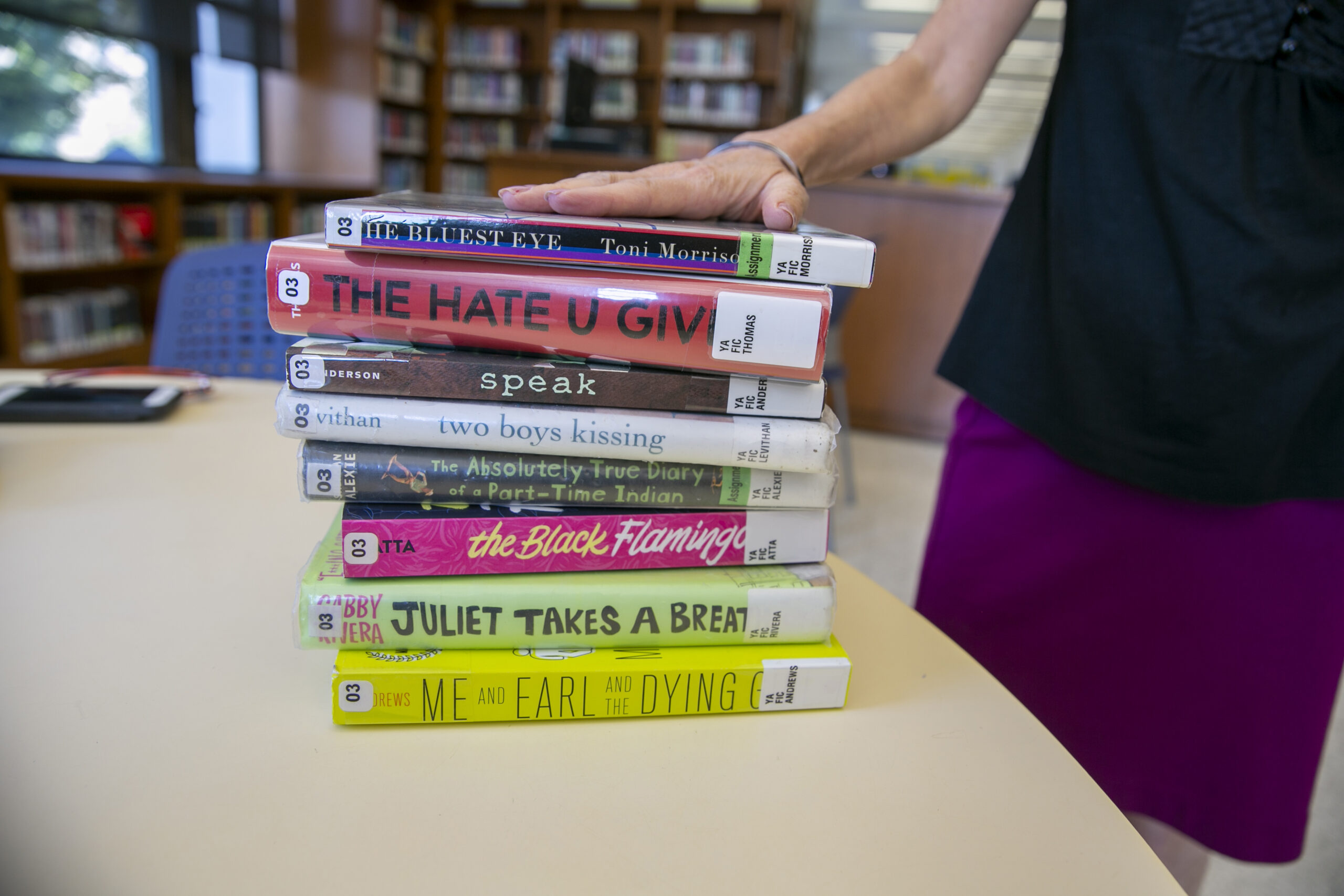Some Wisconsin libraries are receiving requests to remove or add ratings to books that some community members say are inappropriate or promote certain gender ideology.
The requests come as the nation has seen a broader book-banning movement that resulted in a record number of demands to censor library books last year, according to the American Library Association.
Earlier this month, a group of anonymous residents in the northern Wisconsin town of Iron River wrote a letter to the community about books they claim promote certain ideas about gender or include pornographic content. The letter states a few community members approached the library board in July, seeking to hide the books from public view or remove them altogether.
News with a little more humanity
WPR’s “Wisconsin Today” newsletter keeps you connected to the state you love without feeling overwhelmed. No paywall. No agenda. No corporate filter.
“Please know that many small communities, cities and even entire states have successfully restricted the ability of their public libraries to promote and allow distribution of materials on gender idealogy (sic) and any pornographic resources in their communities,” the letter states. “Iron River can do the same.”
The letter says the library carries 75 titles related to “transgenderism” and 475 LGBTQ+ titles. The library’s staff and board clarified the 475 titles are located among 30 libraries in northern Wisconsin. Some of the books targeted in the letter include “My Shadow is Pink,” “The Hips on the Drag Queen Go Swish, Swish, Swish,” and “Let’s Talk About It: The Teen’s Guide to Sex, Relationships, and Being a Human.”
Jacqueline Pooler, director of the Iron River Public Library, said a resident submitted a request to remove the book “Let’s Talk About It” by Erika Moen and Matthew Nolan. The library has had the book on its shelves since 2021. At its Aug. 15 meeting, the library board voted 7-1 to keep the book. However, they decided to move it from the young adult to adult section. The publisher recommends the book for ages 14 and older.
Pooler said the book is a graphic novel that contains drawings that cover gender, sexuality and other topics for people of all sexual orientations.
“What that means is a lot of (drawings) and some of the (drawings) are very specific about how to do certain sexual acts,” Pooler said.
Even so, she said the book also provides a broader overview of the complexity of relationships and sex education.
The Iron River Public Library is not the only one to receive a challenge to that particular book. In April, the Marathon County Public Library received a request to reconsider “Let’s Talk About It” from a community member. The resident didn’t seek the book’s removal but instead requested a rating system for books. In July, the Marathon County Library Board voted to retain the book and forgo a rating system.
Last week, the Wausau Daily Herald reported that Marathon County Corporation Counsel Michael Puerner said a rating system could set the stage for constitutional challenges that would place the library at risk of litigation.

Louise Robbins, a censorship expert and emeritus professor at the University of Wisconsin-Madison, said book banning has been seen at alarming proportions nationwide. She highlighted data from the American Library Association that documented a record 1,269 demands to censor books and resources last year. That’s the highest number of attempted bans since the association began tracking data on censorship more than two decades ago.
Robbins said the requests are coming from people who are sharing lists on social media, adding many often haven’t read the books.
“They have to do with unpleasant history, things that people don’t want to read about — such as the Holocaust or slavery or taking over the Native people’s lands — that make people ‘uncomfortable,’” Robbins said. “Or they have to do with people of color or nonbinary people or immigrants. Or they have something about gender and sexual identity.”
The American Library Association found more than 2,500 books were targeted for censorship last year, and 90 percent came from attempts to ban multiple titles. The association said most were either written by or about people of color and the LGBTQ+ community.
Robbins said the changing format of books has coincided with more intense challenges, as graphic novels become more popular. She noted people can become more easily offended by content that’s communicated through pictures as opposed to the written word. She added politics and extreme polarization also seem to play a role in the censorship requests.
In Wisconsin, a Republican-backed bill would target “obscene” materials in school libraries. A companion proposal would also bar school districts from using library aid to buy items considered obscene. The state obscenity law states that it includes various types of sexual conduct that are “patently offensive” under contemporary community standards. Waukesha Republican State Rep. Scott Allen, the bill’s author, has said the legislation isn’t an attempt to ban books or materials on LGBTQ+ issues.
In Iron River, the anonymous group of residents said in their letter that a meeting will be held on Wednesday, Sept. 6, at 7 p.m. at the community center where people can share views on actions to end “proliferation of these materials.” They’re considering petitions to remove books and seek board resignations. They’re also examining whether to set up a parental advisory board, halt budget increases for the library, enact a “Town Decency Act,” and inform donors of the library’s policies.
Pooler said the library received a letter from an attorney, requesting details about donors to the library. She hadn’t confirmed whether it’s related to the letter.
For now, she said the “Let’s Talk About It” will remain on the library’s shelves until they’re forced to remove the book whether that’s due to another challenge or any litigation that may result in a court order. However, courts have often dismissed legal challenges seeking to ban books, stating that their removal would violate the First Amendment.
Pooler said the library’s role is to provide information, acknowledging that may upset some residents.
“We try to provide all sides of an issue…so that we have a balanced collection providing information on both sides of topics,” Pooler said. “That’s the biggest thing is we’re here to provide information for everybody, not just for a certain segment of the community.”
Wisconsin Public Radio, © Copyright 2025, Board of Regents of the University of Wisconsin System and Wisconsin Educational Communications Board.







